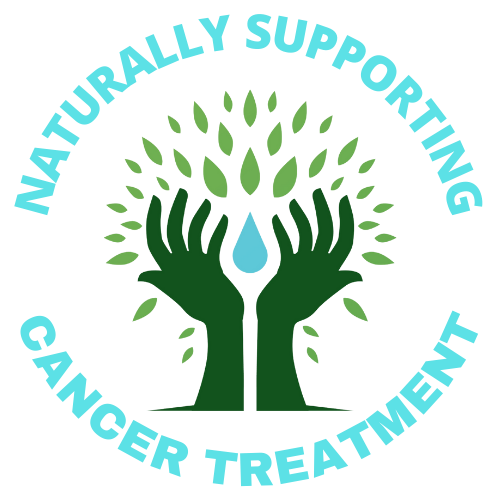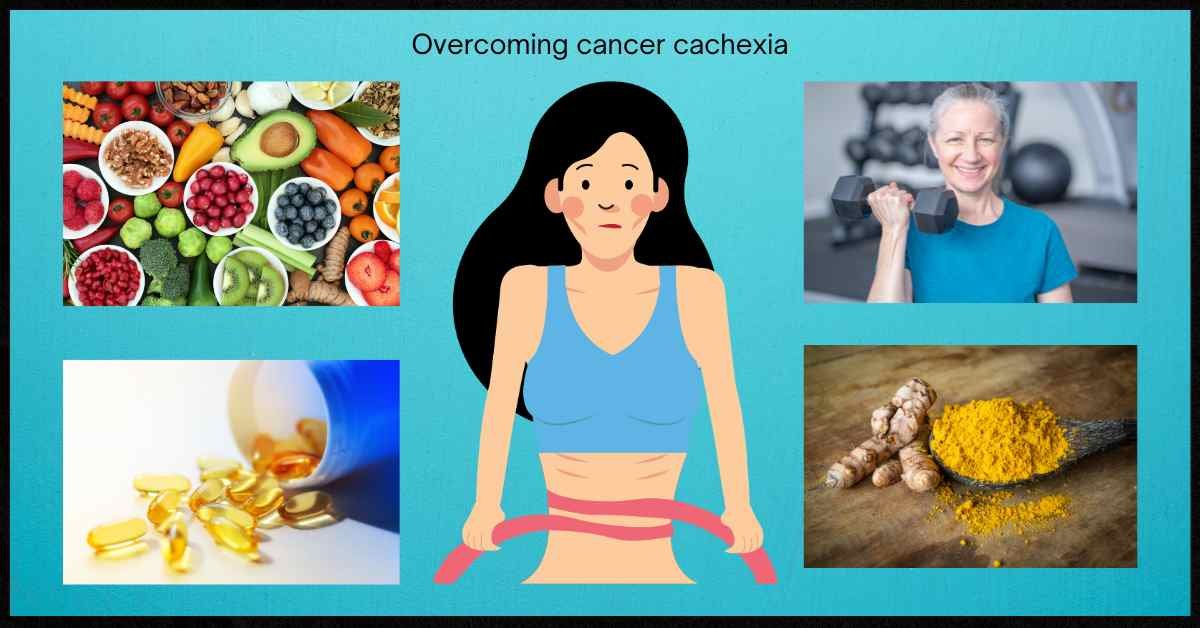Unlocking the Key to Preventing Weight Loss in Cancer
One of the challenging aspects of cancer treatment is the unwanted weight loss that many patients experience. Unexplained weight loss can have serious consequences, leading to weakened immune systems, reduced energy levels, and poorer treatment outcomes. But what if there was a way to prevent this weight loss and improve patients' sense of overall well-being?
In this article, I'll explore the key ways to prevent weight loss in cancer patients. I'll uncover the factors contributing to weight loss and delve into effective strategies that you can implement to combat it. From nutrition and supplements to targeted exercise routines, I'll provide practical tips and advice to support cancer patients in maintaining a healthy weight throughout their treatment.
Understanding cancer-related weight loss
Weight loss is common in many cancer patients. Up to 80% of cancer patients will experience weight loss in varying degrees during their treatment and at least 20% of cancer-related deaths are directly because of it (1). The link between cancer and weight loss is complex and multifactorial.
We can classify cancer-related weight loss into two categories: cachexia and sarcopenia.
Cachexia is a complex metabolic syndrome characterized by weight loss, muscle wasting and systemic inflammation. Often it also includes fat loss. Cachexia affects up to 80% of advanced cancer patients and is a major cause of morbidity and mortality. It doesn't just affect cancer patients. People suffering from congestive heart failure, inflammatory bowel disease, chronic obstructive pulmonary disorder and chronic kidney disease can also develop cachexia.
Sarcopenia refers specifically to loss of muscle mass and strength, and is prevalent in both early and advanced stages of cancer.
It's possible to have sarcopenia without cachexia, but cachexia always involves sarcopenia too. So we will use the term cachexia to cover both of them.
Both conditions have detrimental effects on cancer patients.
Cachexia can lead to decreased functional capacity, insulin resistance, anorexia, impaired immune function, reduced responsiveness to treatment and increased toxicity of it (2).
Sarcopenia can cause increased risk of falls and reduced mobility.
Understanding the underlying mechanisms of these conditions is essential in developing targeted interventions to prevent and manage weight loss in cancer patients.
What causes cachexia?
Some treatments can cause loss of appetite, particularly chemo and radiation. Nausea and a change in the sense of taste also contribute to food being unappealing. But it's almost impossible to reverse it with additional protein and calories.
Tumours can alter the body's metabolism, which further contributes to weight loss. They produce inflammatory chemicals, called cytokines. These inhibit the hormones that stimulate appetite and promote the hormones that suppress it. That leads to a reduction in food intake and begins the breakdown of muscle and fat, which leads to more inflammation (3).
Cancer patients are also prone to problems with the intestinal barrier, leading to hyperpermeability, commonly known as 'leaky gut'. This allows bacteria to move into the bloodstream, which causes even more systemic inflammation (3).
Changes in resting energy expenditure (REE) are common in cancer. A higher REE is most common. This increased energy demand can lead to a negative energy balance in the body, which can lead to weight loss. But sometimes there is a lower REE, particularly if the person is inactive. In either case, cancer treatments are more toxic than in those with normal metabolism (3).
Weight loss in cancer can vary depending on the type and stage of cancer, as well as individual factors such as age, overall health, and different treatment regimes.
Food recommendations for cancer patients
Although it's difficult to reverse cachexia with food, adequate nutrition is still important to support overall health. You should consume a well-balanced diet that includes a variety of nutrient-dense foods. Your diet should be rich in protein, which is essential for preserving muscle mass and promoting healing.
To increase caloric intake, you can incorporate healthy fats, such as avocados, nuts, and olive oil, into their diet. These fats provide a concentrated source of calories and can help prevent excessive weight loss. Small, frequent meals and snacks can ensure you're meeting their nutritional needs throughout the day and are easier for you to manage if your appetite is poor.
Dietitians usually recommend oral nutritional supplements to provide additional calories and nutrients. These supplements can be shakes or powders. My personal experience of these is that they are thoroughly unpleasant. They are also full of chemicals and don't contain proper foods.
My recommendation for those with cachexia who really can't face normal food is to make up smoothies using non-dairy milks, whey protein powder (or pea protein if you're vegan), with some of the healthy fats mentioned above, some berries and green leafy vegetables, which are rich in vitamins and antioxidants.
The role of exercise in preventing weight loss
Exercise plays a vital role in preventing weight loss and preserving muscle mass in cancer patients. Being sedentary or confined to bed can lead to rapid loss of muscle strength. I know this from personal experience: I had trouble climbing the 6 steps outside our home when I left hospital after a month.
Regular physical activity can help improve appetite, increase energy levels, and enhance overall well-being. Cancer patients should ideally engage in at least 150 minutes of moderate-intensity aerobic exercise per week, along with two to three sessions of strength training.
Aerobic exercises, such as walking, swimming, or cycling, can help improve cardiovascular fitness. Strength training exercises can help preserve and build muscle mass. These exercises can include resistance training, using light weights or resistance bands, and bodyweight exercises, such as squats and push-ups.
It's important to consult with your healthcare team before starting an exercise program, because you might need to take certain precautions depending on your individual circumstances. Working with a qualified exercise professional, such as a physiotherapist or exercise physiologist, can help you develop a safe and effective exercise routine.
A useful supplement to prevent weight loss
If you can't reverse cachexia by eating more, omega-3 fatty acids found in fish oils can be helpful. This makes sense, since the primary cause of cachexia is inflammation, and omega-3s are anti-inflammatory.
Most of the studies on omega-3s are inconclusive: some show them to be effective against cancer cachexia and others don't (4). The latest meta-analysis shows that they are only helpful for achieving weight gain when the patients were 67 or older, their starting weight was 60 kgs or less, and the dose was 1 gram or less of omega-3s daily. Doses over 1 gram daily resulted in weight loss (4). However, another recent systematic review of the literature may shed some light on why this is the case.
The two fatty acids that are actively anti-inflammatory in omega-3 supplements are eicosapentaenoic acid (EPA) and docosahexaenoic acid (DHA). They work by competing with omega-6 fatty acids, which are inflammatory. But EPA and DHA have slightly different actions, and there is some evidence that they compete with each other too.
In clinical trials for the use of omega-3s for treating cardiovascular and mental disorders, the trials have proven that EPA is more important than DHA. So most supplements on the market have higher levels of EPA than DHA.
But the recent systematic review examined whether the ratio of EPA to DHA was important in the treatment of cancer cachexia. The researchers found that lower doses of EPA compared to DHA were more effective in reversing weight loss. They believed that this was because the cancer environment caused the omega-3s to be absorbed differently (5).
There is an increasing interest in DHA's anti-cancer activity:
In laboratory testing, DHA kills cancer cells but not healthy ones.
DHA also blocks the activation of NFκB, an inflammatory chemical that starts the cascade leading to inflammation, carcinogenesis, cancer growth and metastasis.
It affects the cancer cell membrane, making it more permeable to chemotherapy.
(5)
If you choose to use omega-3 supplements for cancer, I would suggest that you use one with a higher dose of DHA than EPA, or even DHA alone.
ESPEN, the European Society for Clinical Nutrition and Metabolism, recommends a minimum daily dose of 1.5 g of omega-3s, but a recent analysis suggests at least 2 g a day, and doses of up to 5 g daily don't seem to cause any side effects, including risk of bleeding (5).
Many of the brands sold in supermarkets are of poor quality. Supermarkets brands often come from unsustainable sources, many of which contain high levels of heavy metals, and they don't always guarantee freshness. So choose carefully.
I would strongly suggest buying capsules over liquid. Unless you're very fond of fish, the liquid can be very unpalatable and cause 'fishy burps'. Most capsules contain flavourings to prevent those.
Omega-3s are not the only anti-inflammatory supplement available. There is early evidence that others may be helpful for cachexia, but the evidence is mostly in the laboratory or in animal models at the moment. They include:
branched chain amino acids
probiotics
curcumin
ECGG from green tea
fucoidan
ginger
quercetin
resveratrol
capsaicin
Boswellia serrata
(6)
I talk about many of these in my book because they aren't just helpful for cachexia, but they have anti-cancer effects too. You can find all the online stores which sell the book by clicking on the button below.
References
Berardi E, Madaro L, Lozanoska-Ochser B, et al. A pound of flesh: What cachexia is and what it is not. Diagnostics. 2021;11(1):116. doi:10.3390/diagnostics11010116
Rounis K, Makrakis D, Gioulbasanis I, et al. Cancer cachexia and antitumor immunity: Common mediators and potential targets for new therapies. Life. 2022;12(6):880. doi:10.3390/life12060880
Dias M, Irving S, Alves P, Correia M. What is new in cancer cachexia comprehension and treatment? Acta Portuguesa de Nutrição. 2023;32:76-80. doi:10.21011/apn.2023.3212
Hosseini F, Hemmati A, Takabi FS, Naeini F, Bidar SS. A dose–response meta-analysis of randomized clinical trials investigating the effects of omega-3 supplementation on body weight in patients with cancer cachexia. Clinical Nutrition ESPEN. 2024;59:378-386. doi:10.1016/j.clnesp.2023.12.150
Szlendak M, Kapała A. Does the ratio of eicosapentaenoic acid to docosahexaenoic acid matter in cancer treatment? A systematic review of their effects on cachexia-related inflammation. Nutrition. 2024;124:112466. doi:10.1016/j.nut.2024.112466
Loyala JV, Down B, Wong E, Tan B. Treatment of cachexia in gastric cancer: Exploring the use of anti-inflammatory natural products and their derivatives. Nutrients. 2024;16(8):1246. doi:10.3390/nu16081246

